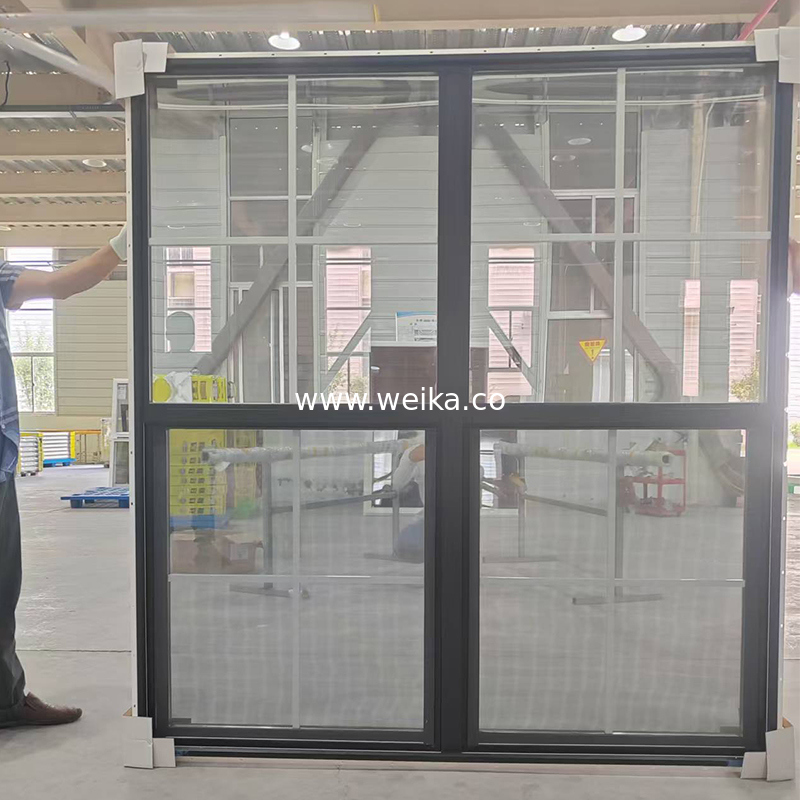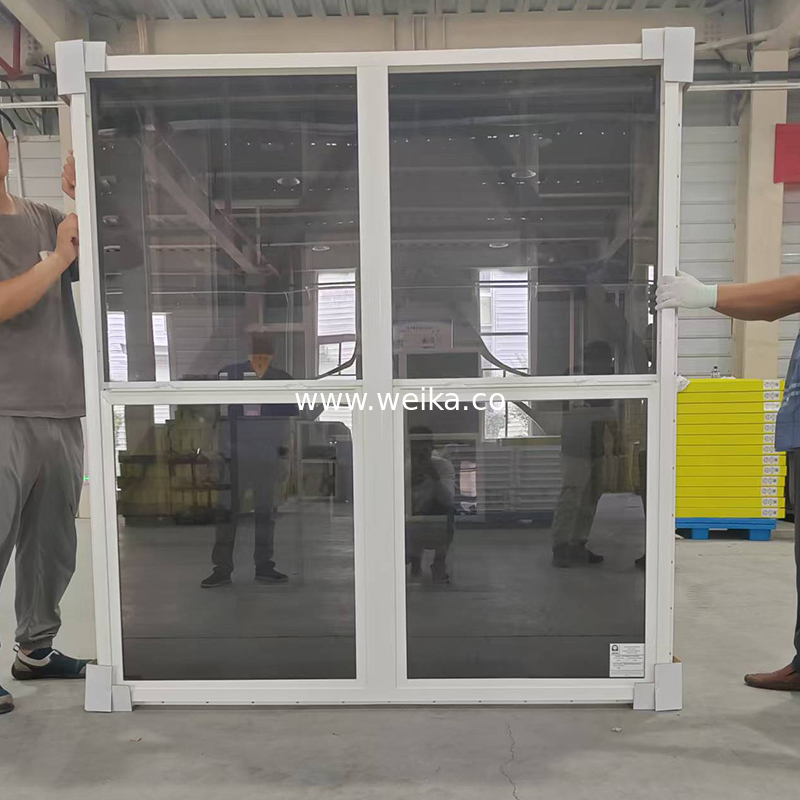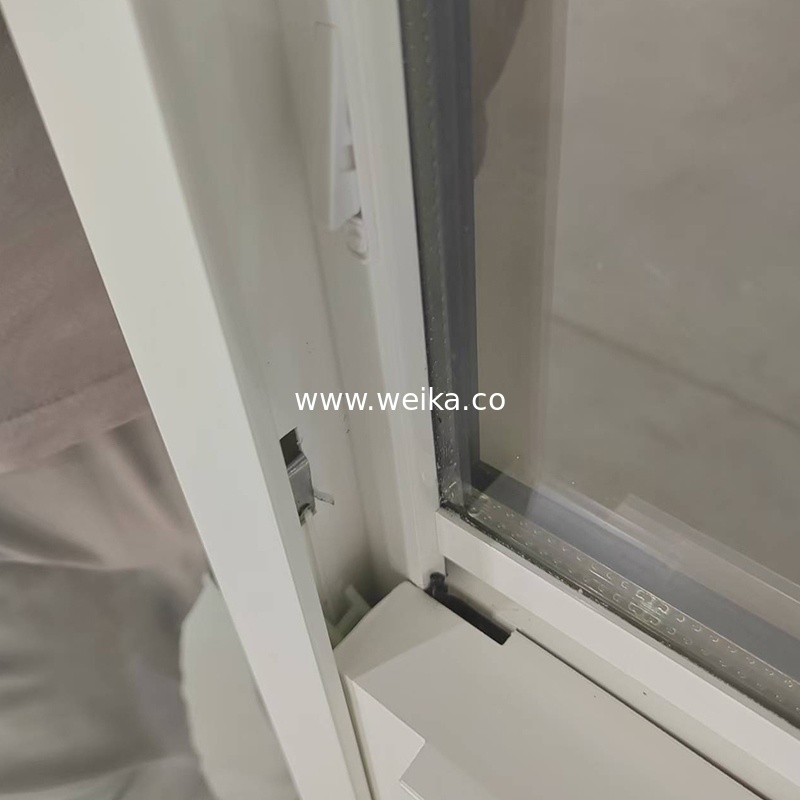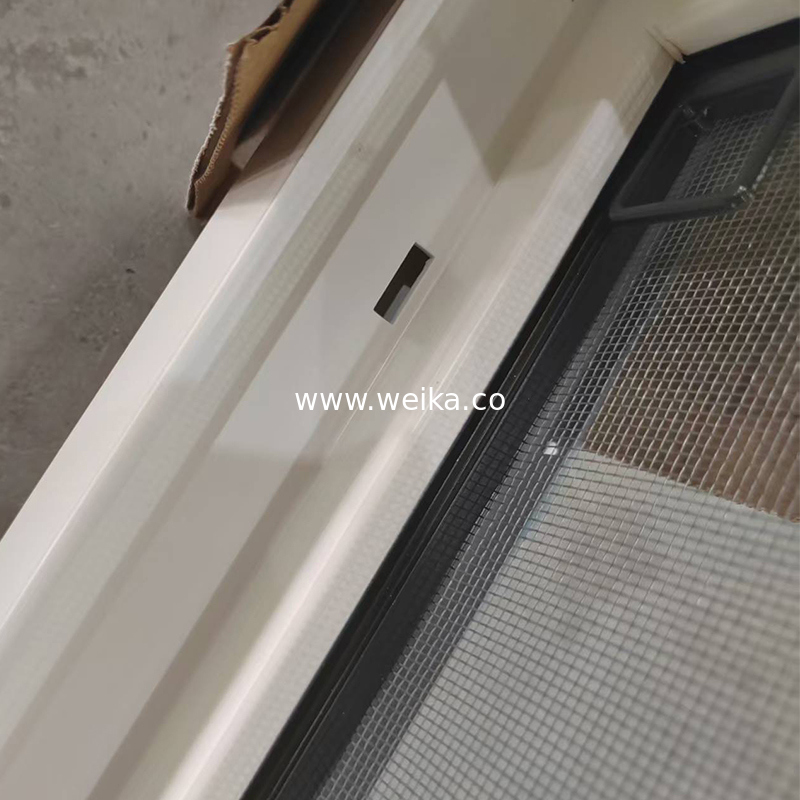Gegevens voor UPVC-hangen
|
|
Profiel
|
Reeks
|
Meestal gebruikte series: 62mm, 64mm, 78mm, 82mm, 85mm, 87mm, 105mm...
|
|
Dikte
|
1.4mm-1.8mm
|
|
Oppervlaktebehandeling
|
Profielen voor extrusie
Profielen voor co-extrusie met één of twee zijden
Profielen met een enkelzijdige of dubbelzijdige coating
Profielen voor het gehele lichaam
|
|
Kleur
|
Gepersonaliseerd ((Meestal wit / zwart / abrikoos...)
|
|
Type
|
A. schuifvensters en -deuren
|
D. Markeiseringen voor ramen en deuren
|
|
B. Ruiten en deuren
|
E. Opvouwbare ramen en ramen
|
|
C. Hangvenster
|
F. Tilt & Turn-venster
|
|
Glas
|
Type
|
Duidelijk / getemperd / getint / laag-E / gevriesd / gelaagd 1- Een glas.
2.Dubbel- of drievoudig glas:
Optie 3+6+3/3+12+3/3+16+3/5+9+5/5+12+5/5+16+5 / Scherm en rasters
3- Gewoon.
|
|
Dikte
|
Glasdikte: 3,4,5, 6,8, 10, 12 Gelamineerde dikte:0.76, 1.14,1.52
|
|
Hardware
|
Merk:Duitse merkChina merk
|
Balans+halve maan slot +weerstrook+scherm Balans+halve maan slot +beperker+weerstrook+ kantel slot+scherm
|
|
Gelag
|
Veiligheidsnet van roestvrij staalVliegscherm van glasvezel
|
|
Verpakking
|
A. krimpverpakking + kartonnen hoek
|
|
B. Houten pallet of stalen pallet op maat ontwerp / maat beschikbaar
|

Vinyl vs. aluminium hangvensters: Kies het juiste materiaal voor uw huis
De keuze tussen vinyl (UPVC) en aluminium voor uw enkelhangende of dubbelhangende ramen
Het is meer dan alleen esthetisch; het heeft fundamenteel invloed op prestaties, levensduur, onderhoud en
De kosten van beide materialen zijn verschillend, zowel qua sterke als zwakke punten.
Laten we de belangrijkste gevechtslijnen uiteenzetten:
1Thermische isolatie en energie-efficiëntie: de duidelijke winnaar is vinyl
met een breedte van niet meer dan 15 mm
Champion Isolator: vinyl is een slechte warmtegeleider.
Het vangt de lucht vast en creëert krachtige thermische barrières.
Minimale thermische overbrugging: het frame zelf overbrengt niet gemakkelijk buitentemperaturen naar binnen.
Het resultaat: aanzienlijk lagere U-waarden (meting van warmteverlies), wat leidt tot lagere verwarmings- en koelrekeningen,
Dit is essentieel voor koude klimaten en energiebewuste gebieden.
Huizen.
Aluminium:
Verwarmingsgeleider: Aluminium is een uitstekende warmtegeleider.
buitentemperaturen naar binnen in de winter en warmte naar binnen in de zomer.
Thermische breuk cruciaal: om dit te beperken, zijn er in de hogere aluminium ramen een "thermische breuk" opgenomen
- een niet-geleidende strip van kunststof of polyamide die het binnenste en het buitenste deel van het frame scheidt.
Dit vermindert de geleiding, maar elimineert het niet.
Resultaat: zelfs bij thermische breuk hebben aluminium frames over het algemeen hogere U-waarden dan vergelijkbare
De Commissie heeft de Commissie verzocht om een verslag uit te brengen over de resultaten van de evaluatie van de in het kader van het programma voor onderzoek en technologische ontwikkeling opgelegde projecten.
hogere energierekening en meer condensatie.

2Duurzaamheid en onderhoud: verschillende soorten stoffelijk materiaal
met een breedte van niet meer dan 15 mm
Zeer duurzaam: bestand tegen rot, corrosie en schade door insecten.
normale omstandigheden.
Onderhoudsvriendelijk: slechts af en toe schoonmaken met zeep en water.
De kleur is meestal consistent in het hele materiaal (niet alleen een oppervlaktelaag).
Aluminium:
Extremely Strong & Rigid: Aluminium is van nature sterker dan vinyl, waardoor het ideaal is voor zeer grote
De meeste van deze installaties zijn gebouwd in de vorm van een venster of in gebieden met een sterke wind, waar de maximale structurele integriteit van het gebouw het belangrijkste is.
afwijking over grote spanningen.
Corrosiebestendig: natuurlijk bestand tegen roest, vooral wanneer het met poeder is bekleed.
in kust-/zoutluchtomgevingen.
Gematigd onderhoud: De poederbeklede afwerking is duurzaam, maar kan uiteindelijk scheuren, krassen of vervagen
(Hoewel moderne coatings zeer veerkrachtig zijn) beschadigde gebieden kunnen aanpassingen nodig hebben.
minder onderhoud dan hout maar meer dan vinyl.

Wanneer je vinylhangen moet kiezen:
Prioriteit 1 is energie-efficiëntie en isolatie: vooral in koude of gemengde klimaten.
Budget is een belangrijke zorg: het zoeken naar de beste waarde.
Een laag onderhoud is essentieel: je wilt niet verven of veel onderhoud verrichten.
Traditionele of hout-look esthetiek wordt de voorkeur gegeven.
Een goede algemene duurzaamheid is voldoende voor uw behoeften.
Wanneer aluminiumplaten (termiek gebroken) kiezen:
Moderne esthetiek en maximaal glazen gebied: Slimme gezichtslijnen zijn van cruciaal belang voor het ontwerp.
Kust-/zoutluchtomgevingen: superieure corrosiebestendigheid.
Vereist zeer grote vensterpanelen: superieure structurele sterkte voor uitgestrekte uitzichten.
Specific Vibrant of Custom Colors zijn gewenst.
Bereid om meer te investeren in ontwerp en duurzaamheid, en prioriteit te geven aan een goede (maar niet absoluut topkwaliteit) isolatie.

Weeg zorgvuldig uw klimaat, budget, ontwerpdoelstellingen en prestatiebehoeften af.
kwaliteitsinstallatie is van cruciaal belang ongeacht het gekozen materiaal om optimale prestaties te garanderen
en levensduur.

 Uw bericht moet tussen de 20-3.000 tekens bevatten!
Uw bericht moet tussen de 20-3.000 tekens bevatten! Controleer uw e-mail!
Controleer uw e-mail!  Uw bericht moet tussen de 20-3.000 tekens bevatten!
Uw bericht moet tussen de 20-3.000 tekens bevatten! Controleer uw e-mail!
Controleer uw e-mail! 



